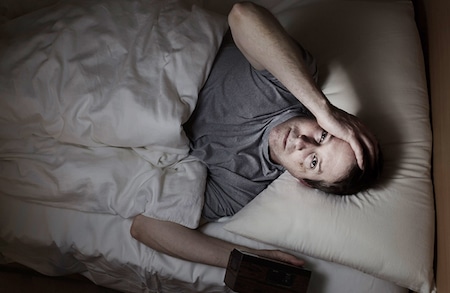Understanding Sleep Apnea and the Need for Early Diagnosis
Sleep apnea is a serious condition that often goes unnoticed, especially since its symptoms are more noticeable to others than to the person suffering from it. That’s why it’s essential to understand the importance of early detection and treatment. In many cases, those who suffer from sleep apnea may not realize they have it until it’s too late. This makes timely sleep apnea diagnosis and effective treatment critical in preventing serious health issues like heart attacks or strokes.
If you suspect you might be experiencing symptoms of sleep apnea, getting evaluated by a professional is the first step toward better health. Sleep apnea treatment in Denver is available through our clinic, where we use advanced techniques to diagnose and treat the condition early, helping prevent further complications.
Why Sleep Apnea Goes Undiagnosed
So why are so many people unaware of their sleep apnea? Partly it’s because the condition occurs at night. Most of us don’t know that our breathing is stopping at night. If you don’t have anyone there to tell you that you stop breathing, you might never figure it out. And if someone is there, they might notice your snoring above all. Snoring is commonly associated with sleep apnea, but many people, especially the snorers, dismiss it as nothing significant.
Other symptoms of sleep apnea, such as daytime sleepiness, morning headaches, and fatigue might be dismissed or explained by other reasons, such as overwork, stress, or poor sleep hygiene.
Doctors are also not as good at identifying sleep apnea as they should be. They do not pick up on connections with type 2 diabetes or high blood pressure. Education of doctors as well as individuals will help improve sleep apnea diagnosis.
Sleep Apnea Screening
Sleep apnea screening tools are also vital to help us identify people with sleep apnea. One of the simplest screening tools is the Epworth Sleepiness Scale (ESS), which asks how likely you are to fall asleep in a number of different situations. People who score high on the ESS should talk to their doctor or a sleep dentist about a sleep test.
Another common screening test is the STOP questionnaire:
- Do you Snore loudly?
- Do you often feel Tired during the day?
- Has anyone Observed that your breathing stops while you sleep?
- Have you been diagnosed with high blood Pressure?
This brief questionnaire is very useful to help identify people with sleep apnea before surgery or other situation where they might have increased risk due to their condition.
There are other screening tools that are used, too, such as the Berlin Questionnaire or the Pittsburgh Sleep Quality Index, but none of these tools can actually diagnose sleep apnea. That requires a sleep test, also called a sleep study.
How a Sleep Test Works
A sleep test is also known as polysomnography because many aspects of your sleep are being measured, such as heart rate, breathing rate, brain waves, leg movements, eye movements, and blood oxygen levels. Measuring all these aspects of your sleep will tell us whether you have sleep apnea, how severe it is, and sometimes what types of treatments may be appropriate. These results are interpreted by a sleep doctor.
The severity of your sleep apnea is based on two things: how often you stop breathing, called the apnea/hypopnea index (AHI), and how much oxygen levels in your blood are affected. Sleep apnea severity is divided into categories based on AHI:
- AHI < 5 No sleep apnea
- 5 ≤ AHI < 15 Mild sleep apnea
- 15 ≤ AHI < 30 Moderate sleep apnea
- 30 ≤ AHI Severe sleep apnea
In addition, sleep apnea severity can be ranked by blood oxygen saturation. Saturation of 90% or more is considered normal. If saturation drops below 80%, it’s considered severe.
Sometimes a sleep test happens in a lab, but it can also be conducted in the comfort of your own home. You can do this if we think that you don’t have other sleep disorders that might interfere with readings. If an at-home sleep study doesn’t give us enough information, you may be referred to a sleep center for testing.
Take Action Today for Better Sleep Health
If you recognize any of the symptoms of sleep apnea, such as loud snoring, daytime fatigue, or difficulty concentrating, it’s crucial to seek professional help. Early diagnosis and treatment are key to preventing long-term health issues associated with sleep apnea, including heart disease and stroke. Our clinic in Denver offers expert sleep apnea treatment options, including oral appliance therapy for those who struggle with CPAP.
Please call our Denver sleep apnea dentist today at (303) 691-0267 to take the first step towards healthier, more restful nights.
Self Screening: Do You Have Problems Sleeping?

The Epworth Sleepiness Scale
This self-administered test is used to determine your level of daytime sleepiness which can be caused by sleep apnea.



